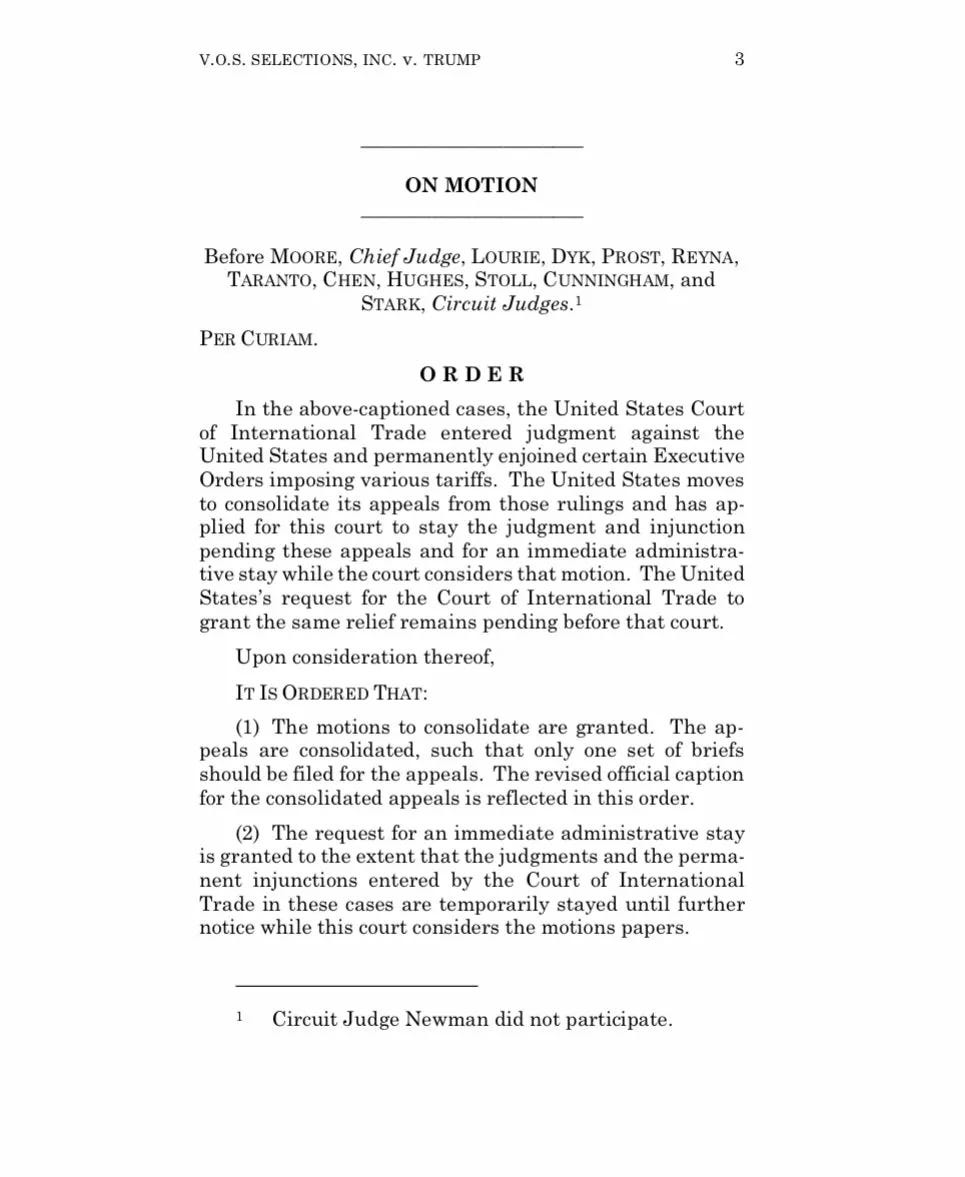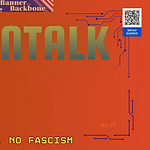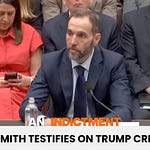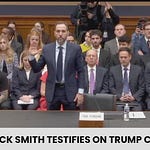The U.S. Court of Appeals for the Federal Circuit just granted Trump an immediate administrative stay that allows his global tariffs to continue while appeals play out. This provides crucial breathing room after two lower courts declared his trade war "contrary to law" and "unlawful."
The Legal Development
The appeals court's order consolidates all tariff challenges and temporarily freezes the lower court injunctions "until further notice." Trump's administration can keep collecting billions in tariff revenue while fighting the legal battle on appeal. The immediate "foreign policy disaster scenario" his lawyers warned about has been averted.
Standard Legal Process
This represents normal appellate procedure - any party facing an adverse ruling has the right to appeal and seek emergency relief while that appeal is considered. Trump's legal team exercised standard legal options available to any litigant, arguing successfully that immediate enforcement of the lower court ruling would cause irreparable harm to foreign policy and national security.
The Substantive Questions Remain
The underlying legal problems haven't changed - lower courts found his emergency justifications insufficient and ruled that Congress, not the president, has primary tariff authority. The appeals court's stay doesn't indicate agreement with Trump's position, just recognition that the status quo should be maintained while they consider the complex constitutional and statutory issues involved.
What the Stay Means
Trump's tariffs generate significant revenue that his administration argues is essential for various government functions. Without them, the administration claimed it would face immediate fiscal and diplomatic challenges. The appeals court accepted this argument and provided temporary relief while the substantive legal questions are resolved.
The stay also indicates the appeals court views the issues as sufficiently complex to warrant careful consideration rather than immediate enforcement of the lower court rulings. This suggests the constitutional and statutory questions involved may not be as clear-cut as the initial rulings implied.
The Revenue Factor
The tariffs have been generating billions in government revenue since their implementation. The administration argued that immediate cessation would not only create fiscal problems but also undermine ongoing diplomatic negotiations where tariff policy serves as leverage. Whether these arguments ultimately prevail on the merits remains to be seen.
The Constitutional Questions
At the heart of this case are fundamental questions about presidential power versus congressional authority over trade. The lower courts found that Trump's use of the International Emergency Economic Powers Act exceeded his authority, but these are complex constitutional issues that often require appellate review to resolve definitively.
The appeals court will now examine whether trade deficits and related economic conditions constitute the kind of "unusual and extraordinary threat" that justifies unilateral presidential action under the statute.
The Broader Trade Policy Stakes
The tariff case represents more than immediate revenue concerns - it will help define the boundaries of presidential power in economic policy. If the appeals court upholds Trump's authority, it could establish precedent for future presidents to act unilaterally on trade issues based on similar economic justifications.
Conversely, if the lower courts' rulings are ultimately upheld, it would reinforce congressional primacy over trade policy and limit presidential use of emergency powers for economic purposes.
What Happens Next
The appeals court will now consider the full merits of the case while the tariffs remain in effect. The timeline for this review could be months, during which the current tariff regime continues to operate and generate revenue.
The administration will argue that current economic conditions, including trade deficits, justify the emergency measures taken. Opponents will counter that such broad interpretation of emergency powers effectively nullifies congressional authority over trade.
The stay preserves the status quo while these important constitutional questions receive the careful appellate review they deserve.












